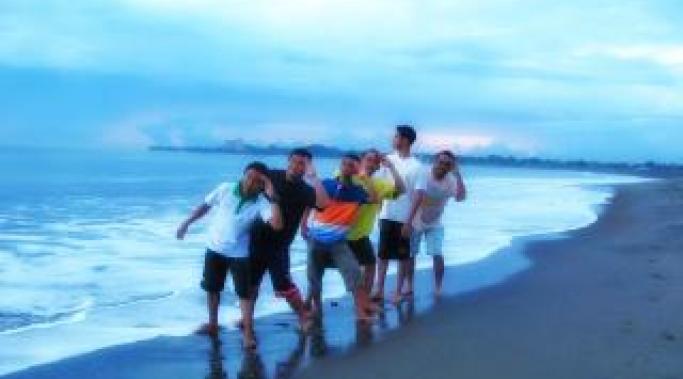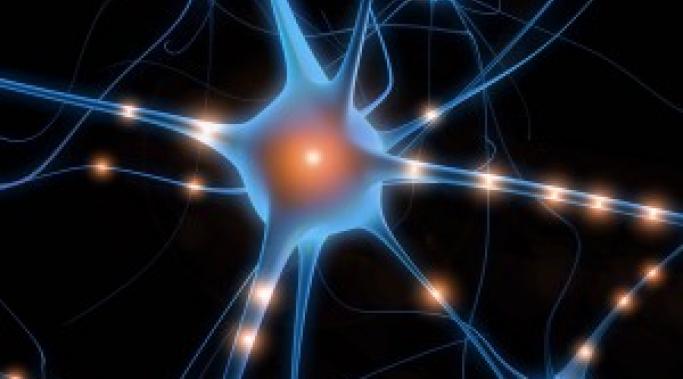If Putting Out Negative Energy, Are You Attracting The Right People?
One problem I see often in survivors of posttraumatic stress disorder (PTSD) moving through trauma recovery is unhappy self-discovery: They don’t like themselves much.
I remember feeling that way myself. Years after my college graduation, I hadn’t been able to build or sustain a career, income or professional or personal relationships. My ties to my family were terribly strained by both my self-imposed isolation and my raging to keep everyone at arm’s length.
Sleep deprived and anxious, I was convinced I was insane and beyond help. Moving through the private hell of my everyday life, I thought pretty poorly of myself. (Could you blame me?)
PTSD Recovery Tips
Dear Post-Traumatic Stress Disorder (PTSD) Caregivers,
Most of the time those of us in the PTSD healing community focus on survivors. Today, I'm focusing on you (survivors, share this with the caregivers in your life!) because supporting you helps you better support your survivor.
I know the PTSD journey is tough for you. It's hard to live and cope with, endure and anticipate PTSD symptoms, plus support someone who at times behaves in a crazy manner. You and your life can get swallowed up in the process and so it makes total sense that you want recovery to happen as quickly as possible.
The truth is, anyone struggling with symptoms of PTSD wants to heal as quickly as possible, but that's not always an option.
After trauma, the number one thing I hear survivors say is, “I just want things to go back to the way they were.” That’s a normal wish and desire. Before trauma, you felt a sense of safety, security, surety and certainty that made you feel like you understood the world and your place in it. Even if your trauma happened so early that you can’t remember life before it, the idea of safety holds true.
Of course, you can’t go back to who you were or could have been before. You can only go forward to discover the new you.
All too often we’re told (or we tell ourselves) the wrong things in posttraumatic stress disorder (PTSD)recovery. For example, a woman recently wrote to me:
How do you maintain acceptance of PTSD and its symptoms while pursuing healing?
My answer: You don’t have to.
And then a man I met at a survivor event last week asked me:
If you’re constantly pursuing healing aren't you in a different state of mind than acceptance?
My answer: Yes, and no. Both these questions depend on how you define “acceptance.”
A few weeks ago I wrote about how to stop PTSD anxiety, flashbacks and panic from the perspective of putting mindfulness and intention into action. My colleague, Megan Ross (Trauma Therapy Coordinator at Timberline Knolls) and I had a whole conversation about this and I wanted to share her insights with you.
But there was a cliffhanger: Once you understand PTSD symptoms and how mindfulness can help change your physiological experience, the question arises, "What do I do now?" Specifically, what can you do to interrupt or stop flashbacks?
Megan Ross and I talked about this too. See what you think about the tips that we covered.
In the world of posttraumatic stress disorder (PTSD) we're all in the same space together (as survivors), but so often we feel enormously separate, don't we? PTSD symptoms and the lifestyle they create open a void between you and everyone else.
New research, however, points out how important it can be to have a social support network to prevent PTSD.
When Dr. Dan Siegel talks about posttraumatic stress disorder (PTSD) and integration in trauma recovery, he explains PTSD symptoms as pulling survivors between the two extremes of a riverbank: On one side is rigidity and on the other side, chaos.
For a long time after my trauma I felt sucked into the darkness and despair of grief, loss, fear, anxiety and the frustration of the same question I repeatedly asked myself,
"Who am I now?"
It seemed that trauma and PTSD symptoms had branded me for life and there was no way to:
go back to who I'd been before (I was right about that)
go forward and become someone new (I was wrong about that)
What do we do when we get stuck in that place??
Unwanted trauma memories are soooo hard to get rid of, aren’t they? You try to ignore them, suppress them, pretend they don’t exist or didn’t really happen. But they persist with more determination than ants discovering an untended picnic spread. This means that a trauma memory can hang in an activated loop that makes it feel like threat continues and the experience is present. And then what happens? Whew, PTSD and fatigue, for one thing!
Memory is important when it comes to PTSD and integration, so I decided to ask a pro about all of this – and what can be done about it. Dr. Michael Smith, of Life Extension Magazine, outlined for me fascinating information about the brain, the processing of memories, and how one simple supplement can help improve brain function in areas hugely important for trauma recovery.
Posttraumatic-stress disorder (PTSD) involves a lot of sadness: about your having been victimized, about having developed a persistent mental disorder (and that's exactly what it is), about how few people understand what happened to you, about how few people understand how your life has been changed as a result, and about how difficult it is to get it all resolved - fixed - taken care of. And that's hardly a complete list. What do these all have in common? Loss. Sadness is a reaction we have automatically and outside any direct control when we realize we've lost something that matters.
What can you do about it? Two things, basically. You can shift your attention or you can deal with the problem directly. The first option is almost always the easiest, but you should know that it's temporary at best.









